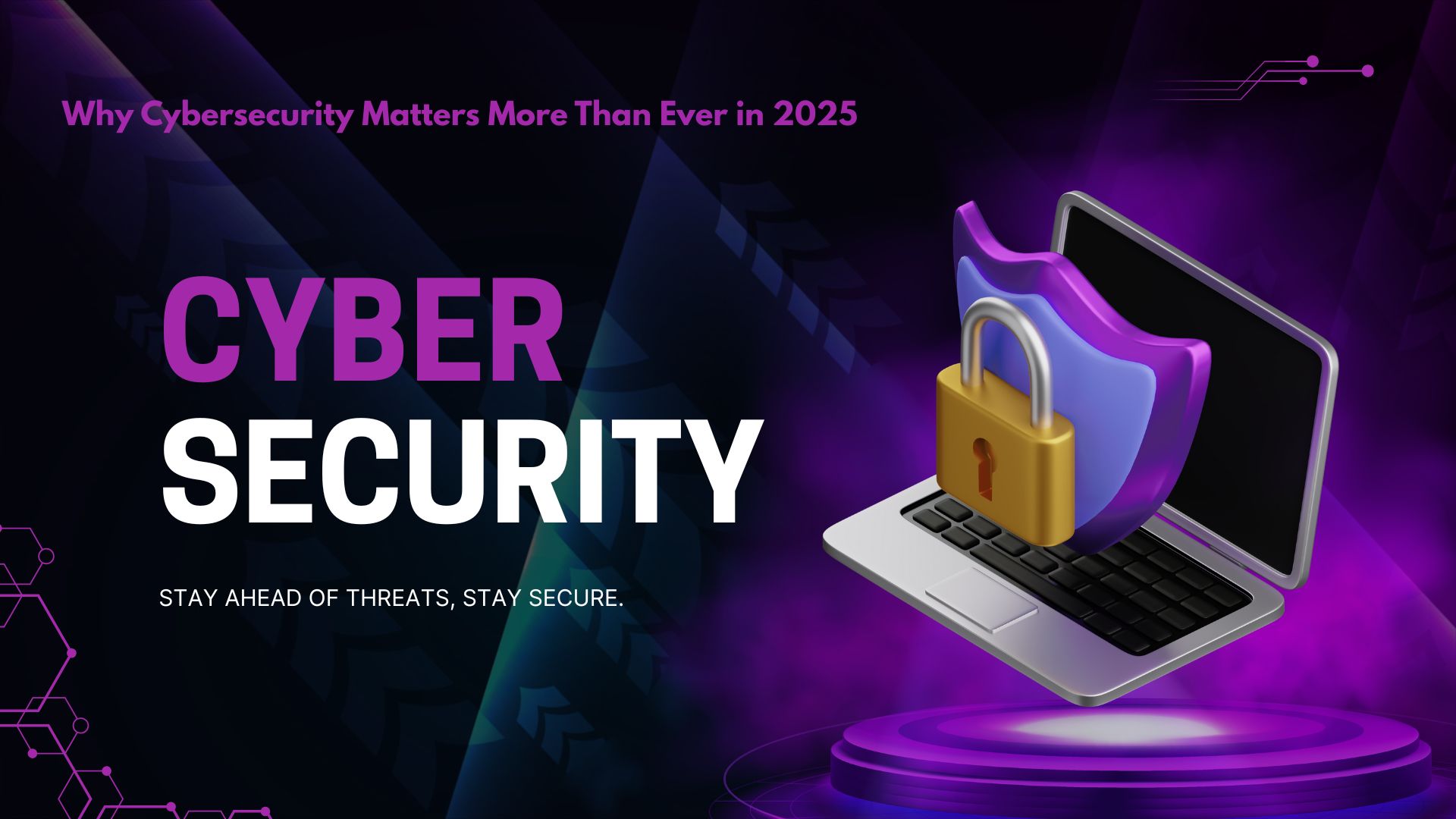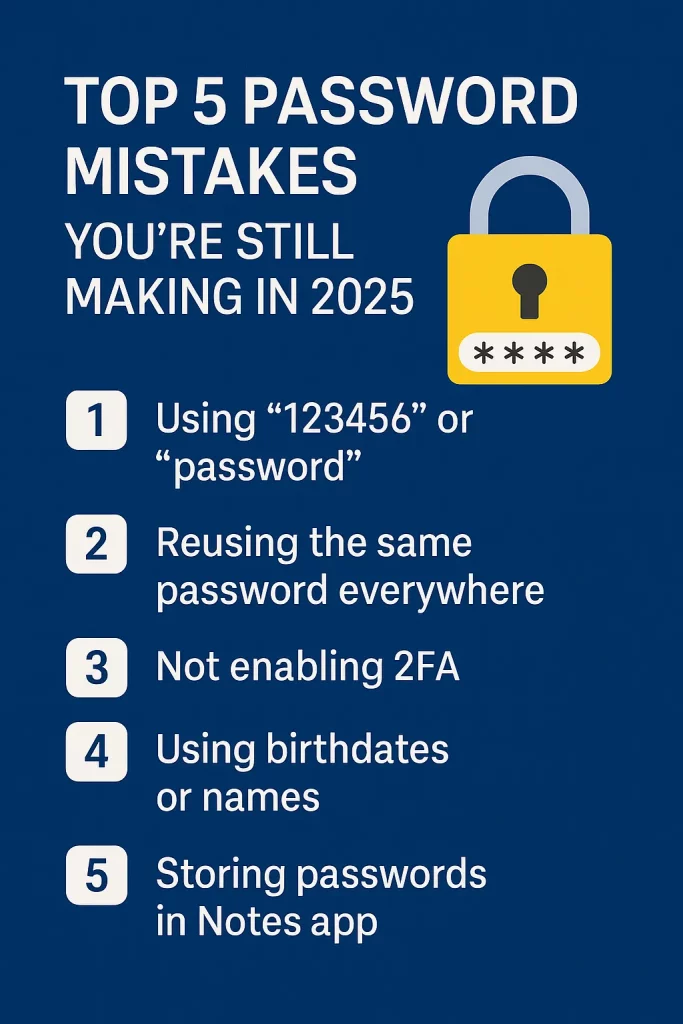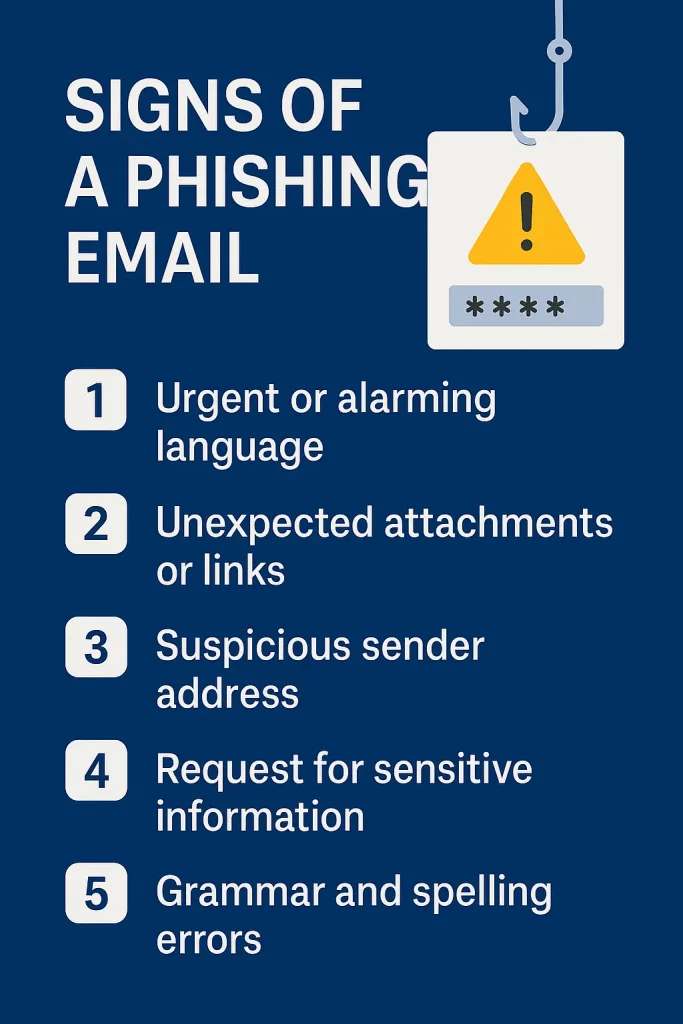Why cybersecurity matters more than ever in 2025
In today’s digital first world, cybersecurity is no longer a concern reserved for tech experts or large corporations. As we navigate an increasingly connected environment where everything from smart homes to smartphones is online everyone becomes a potential target for cyber threats. In 2025, cybersecurity is not just a technical issue; it’s a personal and societal priority.
The rising tide of cyber threats
Cybercrime has evolved rapidly. What began as simple viruses and email scams has transformed into sophisticated ransomware attacks, phishing schemes, and AI driven hacks. According to recent global security reports, cyberattacks now occur every 39 seconds. Whether it’s a large scale breach at a multinational bank or a phishing message targeting a student, no one is immune.
Hackers today are more organized and better funded than ever before. Cybercriminal groups operate like businesses, complete with customer service, data marketplaces, and malware as a service offerings. They exploit human error, outdated software, and weak passwords to gain unauthorized access to sensitive information.
Why personal cybersecurity is crucial
Many people still underestimate the importance of personal cybersecurity. They assume cyberattacks only happen to companies or government agencies. But in reality, individuals are often easier targets. Weak passwords, unsecured WiFi, and lack of two factor authentication create openings for attackers.
Identity theft, financial fraud, and privacy invasions are just a few consequences of neglecting basic cybersecurity practices. Once attackers gain access to your data, they can sell it on the dark web or use it for further exploitation. From social media accounts to health records, everything is valuable in the cybercrime ecosystem.
Business and cybersecurity: a critical connection
For businesses, especially small and mid-sized enterprises (SMEs), the stakes are even higher. A single data breach can cost millions in lost revenue, legal penalties, and damaged reputation. Customers are less likely to trust a company that fails to secure their data.
Cybersecurity should be a boardroom topic, not just an IT concern. In 2025, compliance with privacy laws like GDPR, CCPA, and other regional regulations is a minimum requirement. Companies must invest in cybersecurity infrastructure, employee training, and regular audits to stay ahead of evolving threats.
Emerging technologies and new vulnerabilities
The rise of AI, IoT (Internet of Things), and cloud computing has revolutionized how we live and work but it’s also opened up new attack surfaces. Smart devices collect vast amounts of data and often lack strong security protocols. AI systems can be manipulated through adversarial inputs, and misconfigured cloud environments can lead to massive data leaks.
As we adopt newer technologies, a “security by design” approach becomes essential. This means embedding security measures into the development phase of all systems and applications rather than treating them as an afterthought.
How to stay protected
Whether you’re an individual, a startup, or a multinational company, these cybersecurity practices should be part of your daily routine:
-
Use strong, unique passwords for each account and store them securely with a password manager.
-
Enable two-factor authentication (2FA) whenever possible.
-
Keep your software and devices updated to patch known vulnerabilities.
-
Be cautious with emails and links, especially those asking for personal information or urgent actions.
-
Regularly back up your data, both on the cloud and offline.
-
Educate yourself and others about the latest scams and security best practices.
Final thoughts
Cybersecurity is everyone’s responsibility. In 2025, the digital world is more advanced and more dangerous than ever before. By adopting proactive security habits and staying informed, we can protect ourselves, our businesses, and our communities from becoming victims of cybercrime.




